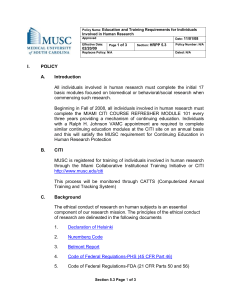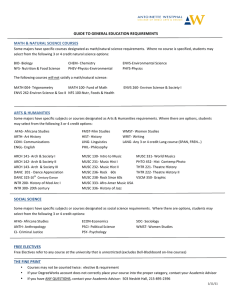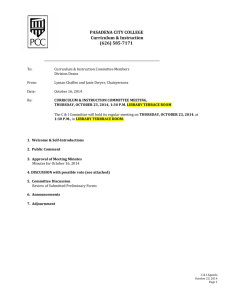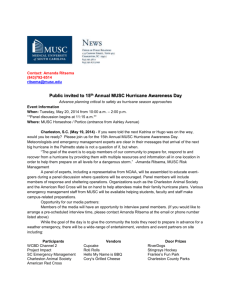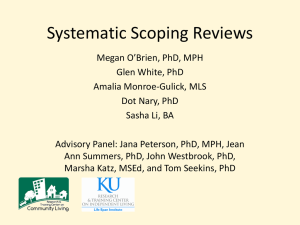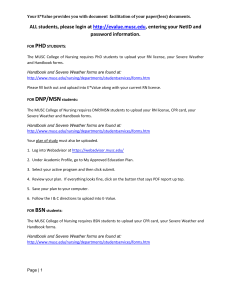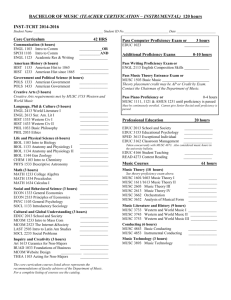MUSC Established Cooperative Agreement to Aid in Eliminating
advertisement
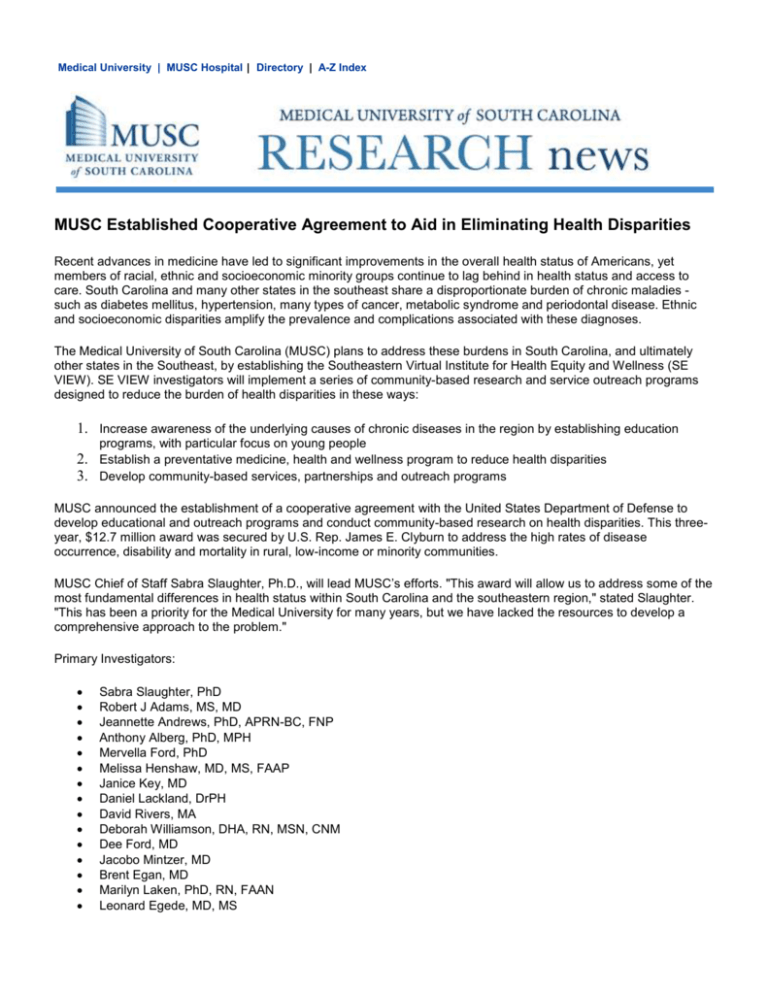
Medical University | MUSC Hospital | Directory | A-Z Index MUSC Established Cooperative Agreement to Aid in Eliminating Health Disparities Recent advances in medicine have led to significant improvements in the overall health status of Americans, yet members of racial, ethnic and socioeconomic minority groups continue to lag behind in health status and access to care. South Carolina and many other states in the southeast share a disproportionate burden of chronic maladies such as diabetes mellitus, hypertension, many types of cancer, metabolic syndrome and periodontal disease. Ethnic and socioeconomic disparities amplify the prevalence and complications associated with these diagnoses. The Medical University of South Carolina (MUSC) plans to address these burdens in South Carolina, and ultimately other states in the Southeast, by establishing the Southeastern Virtual Institute for Health Equity and Wellness (SE VIEW). SE VIEW investigators will implement a series of community-based research and service outreach programs designed to reduce the burden of health disparities in these ways: 1. Increase awareness of the underlying causes of chronic diseases in the region by establishing education programs, with particular focus on young people 2. Establish a preventative medicine, health and wellness program to reduce health disparities 3. Develop community-based services, partnerships and outreach programs MUSC announced the establishment of a cooperative agreement with the United States Department of Defense to develop educational and outreach programs and conduct community-based research on health disparities. This threeyear, $12.7 million award was secured by U.S. Rep. James E. Clyburn to address the high rates of disease occurrence, disability and mortality in rural, low-income or minority communities. MUSC Chief of Staff Sabra Slaughter, Ph.D., will lead MUSC’s efforts. "This award will allow us to address some of the most fundamental differences in health status within South Carolina and the southeastern region," stated Slaughter. "This has been a priority for the Medical University for many years, but we have lacked the resources to develop a comprehensive approach to the problem." Primary Investigators: Sabra Slaughter, PhD Robert J Adams, MS, MD Jeannette Andrews, PhD, APRN-BC, FNP Anthony Alberg, PhD, MPH Mervella Ford, PhD Melissa Henshaw, MD, MS, FAAP Janice Key, MD Daniel Lackland, DrPH David Rivers, MA Deborah Williamson, DHA, RN, MSN, CNM Dee Ford, MD Jacobo Mintzer, MD Brent Egan, MD Marilyn Laken, PhD, RN, FAAN Leonard Egede, MD, MS

